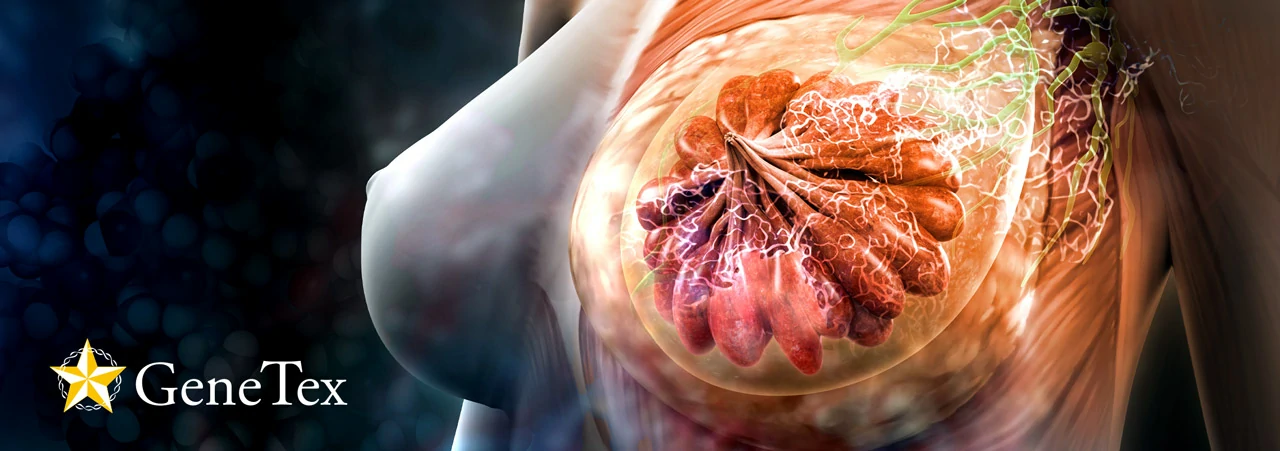Source Genetex
Coenzyme Q10 (CoQ10) is a fat-soluble metabolite known to play a major role in cellular metabolism. It is also thought to impact the mechanical properties of membranes. In addition, the CoQ10 system can affect cancer cell resistance to ferroptosis, a form of programmed cell death to which certain cancers are vulnerable. In an exciting new study, Tosi et al. sought to unravel the involvement of CoQ10 in the development, spread, and resistance to ferroptosis of triple-negative breast cancer (TNBC) (1). The authors used an array of strategies to reveal that decreased CoQ10 plasma membrane (PM) levels as well as loss of one of its biosynthetic enzymes (UBIAD1) indeed influences breast cancer development, metastasis, and ferroptosis resistance. These effects were mediated in part through altered PM fluidity/mechanics and PI3K/AKT oncogenic signaling. These findings form a basis for further work to assess the potential of CoQ10 supplementation or UBIAD1 stabilization as novel therapeutic approaches for TNBC and other aggressive malignancies.
This study used the GeneTex antibodies AKT2 antibody (GTX128457) and FAK (phospho Tyr397) antibody (GTX129840) for western blot analysis. GeneTex offers an unparalleled catalog of quality antibodies and reagents for cancer and metabolism research. In addition, we are expanding our line of HistoMAXTM antibodies that are optimized for immunohistochemistry by large-scale validation on human normal and cancer tissues. For more information, please visit the GeneTex website.
Read more https://www.genetex.com/MarketingMaterial/Index/newsletter_W41

